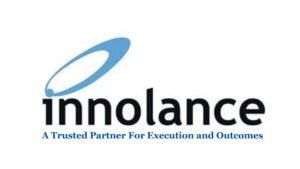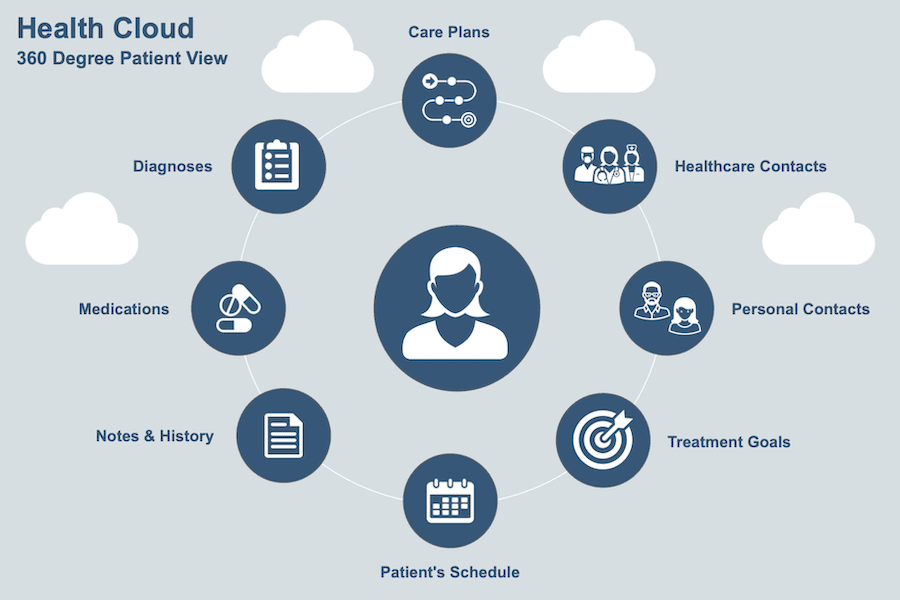The healthcare industry is undergoing a rapid digital transformation, with a growing emphasis on personalized care, data security, and patient engagement. At the forefront of this change is Salesforce Health Cloud, a robust CRM platform designed specifically for healthcare and life sciences organizations. By providing a 360-degree view of patients, enhancing collaboration among care teams, and streamlining operations, Health Cloud is revolutionizing the way healthcare providers deliver care.
What is Salesforce Health Cloud?
Salesforce Health Cloud is a cloud-based platform built on Salesforce’s proven CRM technology, tailored to meet the unique needs of healthcare providers, payers, medical device companies, and pharmaceutical firms. Unlike generic CRM systems, Health Cloud integrates clinical and non-clinical data from various sources, giving providers a holistic view of each patient’s health journey.
Key Features and Benefits
1. 360-Degree Patient View
One of the most transformative features of Salesforce Health Cloud is the 360-degree patient view. Providers can access a unified profile that includes medical history, current conditions, medications, lab results, and even social determinants of health (SDOH). This data consolidation allows care teams to make better-informed decisions and offer more personalized treatment plans.
2. Enhanced Care Coordination
Health Cloud facilitates better care team collaboration by providing shared care plans, real-time messaging, and task management. Nurses, physicians, case managers, and specialists can all work together within the platform, ensuring continuity of care and reducing the risk of miscommunication or redundancy.
3. Improved Patient Engagement
Modern patients expect the same level of communication and convenience from their healthcare providers as they do from other service industries. Salesforce Health Cloud supports secure messaging, mobile access, appointment scheduling, and patient portals, allowing providers to stay connected with patients before, during, and after their visits.
4. Interoperability and Data Security
With built-in interoperability, Health Cloud can connect with electronic health records (EHRs), wearables, and other healthcare systems using HL7 and FHIR standards. It also ensures HIPAA compliance, safeguarding sensitive health information and maintaining patient trust.
5. AI and Analytics for Predictive Care
Leveraging Salesforce Einstein, Health Cloud offers AI-driven insights that help identify high-risk patients, recommend proactive interventions, and track population health trends. These analytics enable healthcare organizations to shift from reactive to proactive care models.
Use Cases in the Real World
Salesforce Health Cloud is being used across various sectors of the healthcare ecosystem:
-
Hospitals and Clinics use it to improve patient intake, track outcomes, and reduce readmission rates.
-
Health Insurance Providers leverage it for better member engagement and faster claims resolution.
-
Pharma and Medtech Companies utilize it to manage relationships with providers, track clinical trials, and coordinate field reps.
Why It Matters Now
Post-pandemic, the need for scalable, cloud-based healthcare solutions has skyrocketed. Patients expect personalized, connected care experiences. Providers are under pressure to reduce costs while improving outcomes. Health Cloud addresses these demands with a flexible and scalable solution that adapts to evolving healthcare models.
Getting Started with Salesforce Health Cloud
Implementing Salesforce Health Cloud requires thoughtful planning and the right partner. It involves data migration, system integration, and training for staff to ensure a smooth transition. Working with a Salesforce-certified partner who understands healthcare workflows can dramatically reduce time to value.
If you’re a healthcare provider or organization ready to embrace digital transformation, Salesforce Health Cloud can be your catalyst. It doesn’t just digitize records—it enables better care.
Looking for expert guidance? [Your Company Name] specializes in Salesforce Health Cloud implementation for healthcare providers of all sizes. [Visit our website] to learn how we can help you streamline operations and deliver exceptional patient care.
Integrating HubSpot with Salesforce Health Cloud for Smarter Patient Engagement
While Salesforce Health Cloud excels at managing patient care and clinical data, integrating it with HubSpot can supercharge your marketing and engagement strategies. HubSpot is a powerful inbound marketing, sales, and service platform that, when connected to Health Cloud, creates a seamless pipeline from outreach to ongoing care.
With the Salesforce-HubSpot integration, healthcare organizations can:
-
Nurture Patient Leads: Use HubSpot’s email automation, landing pages, and lead scoring to attract and nurture prospective patients or members before they enter the clinical journey in Health Cloud.
-
Sync Patient Journeys: Automatically transfer qualified contacts and behavioral data from HubSpot into Health Cloud, so care coordinators and service teams have deeper insights into each patient’s needs and expectations.
-
Create Personalized Campaigns: Segment audiences based on demographic and clinical data, then run targeted campaigns promoting wellness programs, preventive care visits, or chronic care management.
-
Track ROI on Outreach: Gain end-to-end visibility into how marketing efforts translate into appointments, treatments, or enrollments using HubSpot’s analytics dashboards synced with Health Cloud data.
So why wait? Get all of the details now at innolance.com. Learn more about salesforce healthcloud here too.

